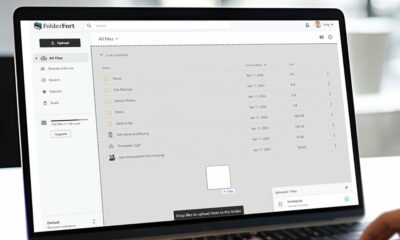TECHNOLOGY
Pros & Cons of a Data Warehouse
A data warehouse is an enterprise system used for business intelligence analysis and reporting of structured and semi-structured data.
With almost everything around us becoming a source of data, it’s proving to be quite a challenge for traditional data warehouses to support such fast changing and high volume data. So is data warehouse a thing of the past already?
A huge collection of data from various sources is known as a data warehouse. The data warehouse was initially created to store information of an organization. This information refers to the data that is about an organization’s sales, purchase, customers, employees, etc. The need for a data warehouse emerged as storing and retrieving this data became a tedious task.
What Are the Pros of a Data Warehouse?

A data warehouse has various exclusive features. Four of the most outstanding features of data warehouses are:
1. Structured Information Stored
Information that is stored in a structured manner. This means that the data stored here is divided according to their sources and stored in their respective data marts. If there is data that has to be added to sales, that information will go in the sales data mart that has been created in the data warehouse. There is no cluttered input of data in a data warehouse.
2. Integrated Data
Data integration is one of the prime features of data warehouses. Integrated storage of data means that data from multiple sources is stored together in a data warehouse.
3. Non-Volatile
Data that is being stored in a data warehouse is non-volatile, as information stored in a data warehouse cannot be edited. Once the information has been inserted into a data warehouse, it can only be updated or deleted altogether.
4. Time-Variant
Information that is stored in a data warehouse cannot be edited, and hence it can be stored inside a data warehouse for a long period of time. If an organization wants to assess why their sales have dropped over the last one year, while they had uncountable sales 2 years ago, they can refer to the strategy they used back then by referring to the information that is stored in their databases.
What Are the Cons of a Data Warehouse?
With time, organizations have realized data warehouse’s limitations. Here are three such drawbacks:
1. Data is Rigid
Since information is stored in a specified file format, for the data to be used in a data warehouse, it has to be changed to that file format. This has led to the shortcoming that data warehouses cannot store data with mixed file formats.
2. High Maintenance Cost
Whenever a small organization gets a large IT project, they require high maintenance systems. These high maintenance systems require financial resources. This leads an organization into spending more of their resources rather than making benefits.
3. Inability to Store Huge Amount of Data
Its inability to store huge chunks of data is considered to be one of the major drawbacks of data warehousing. This led to big data not being supported by data warehouses.
How Can We Move Ahead of The Limitations of Data Warehousing?

The inability of data warehousing to store information with different file formats and huge chunks of data led to the innovation of Uniform Information Architecture. Using this kind of architecture, organizations can store information of various file formats, and data is volatile. This kind of database can also store information that was previously being stored in a data warehouse.
There are various organizations that are still using data warehouses, however, those who are dealing with big data at their hands have moved on to a better version. It would not be wrong to conclude that data warehouses can never be a thing of the past as newer techniques for data storage will form the basis of what data warehouses were initially brought in for.
Source link



















You must be logged in to post a comment Login